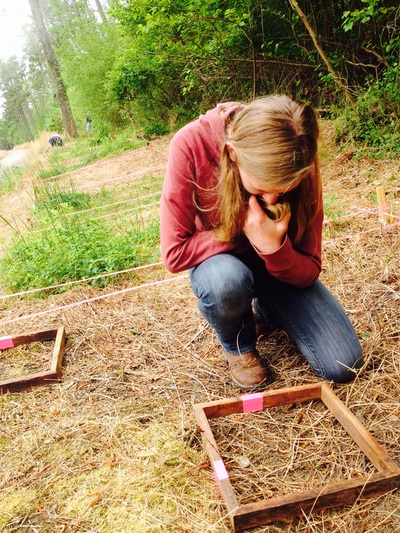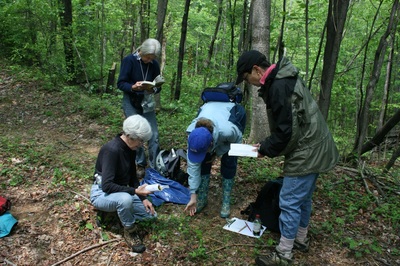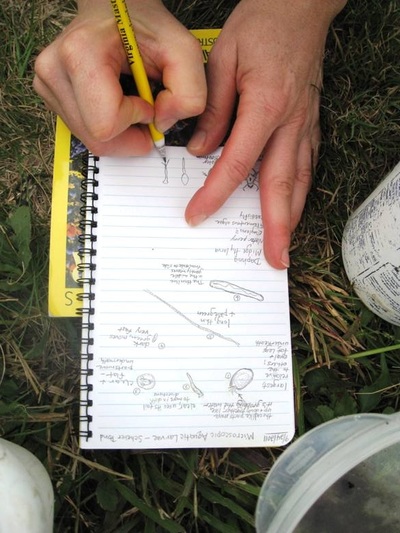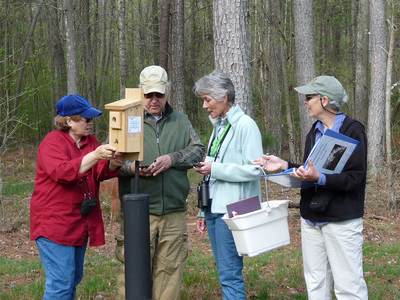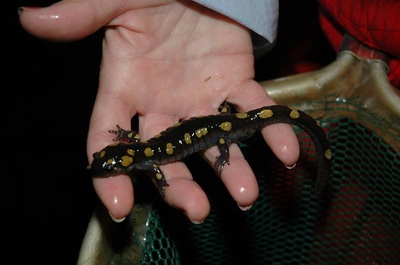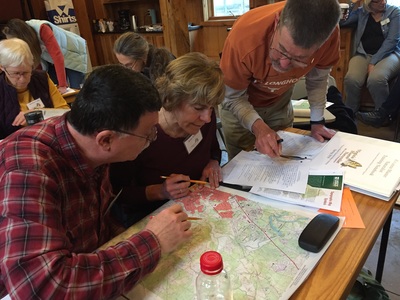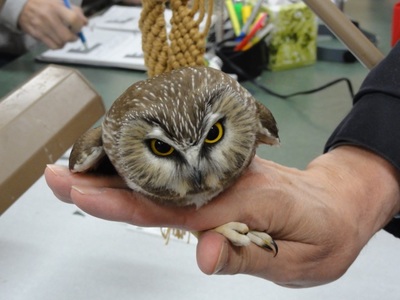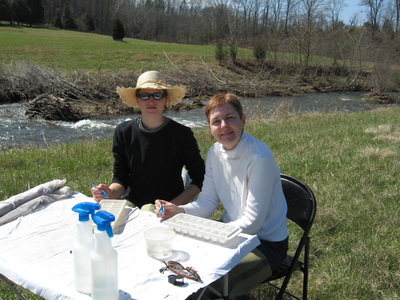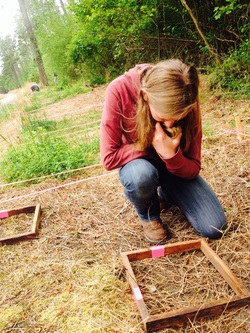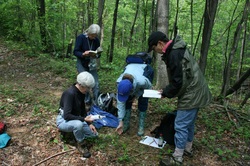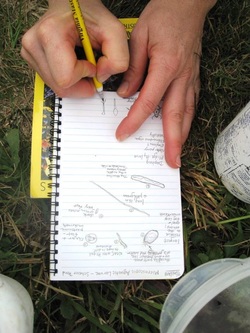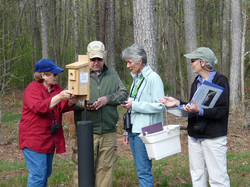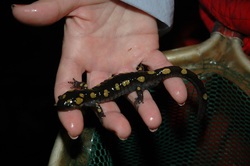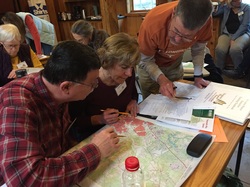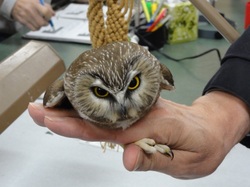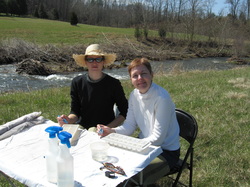Virginia Master Naturalist Basic Training Curriculum
Citizen Science and Research Skills
|
This page contains numerous curriculum resources that may be used flexibly by Virginia Master Naturalist chapters and trainees to meet their learning needs. These resources also are available to other volunteer programs and the public for their use, but please note that watching or reading these materials cannot substitute for enrolling in and completing a basic training course with a VMN chapter in order to become a Virginia Master Naturalist volunteer.
Thank you to the many people who contributed to the creation of these materials, including Alycia Crall (curriculum co-author), Sonny Bowers (BioBlitz video), Michael Hayslett (field journal reading), Priya Jaishanker (RareQuest video), Sara Focht (background reading), Donna Long (field journal reading and images), and the many VMN volunteers who provided feedback when we tested these materials. |
Give us your feedback on these curriculum materials!
|
Learning Objectives
|
Introductory VideosWhat: Short videos to introduce volunteers to the topic of Citizen Science and Research Skills.
Possible uses:
For an introduction to this topic: What is Citizen Science by the University of Minnesota Extension on YouTube.
For an example of citizen science with one of our VMN chapters: BioBlitz 2016 by Sonny Bowers with the Historic Rivers Chapter.
BioBlitz 2016 from Sonny Bowers on Vimeo. For another example of a previous Virginia Master Naturalist citizen science project, RareQuest, watch below or at video.vt.edu.
|
Background ReadingsMost Recommended Readings
Citizen Science: Learning About the World with Science by Sara Focht: This publication was written for the Idaho Master Naturalist program, but it is highly appropriate for Virginia Master Naturalists as well. Field Journaling - Facts and Feelings by Michael Hayslett.
Supplemental Readings
Federal Crowdsourcing and Citizen Science Toolkit, https://www.citizenscience.gov/toolkit/ Above and Beyond, for those seeking more in-depth information Note that book publisher websites are provided, but often these books are available from other sources at varying prices.
Online Data Management Resources iNaturalist: http://inaturalist.org. This online tool and app combines the power of social media with nature observation. It is the tool the Virginia Department of Game and Inland Fisheries is using for the WildlifeMapping project. It is also a great tool for recording BioBlitz data; we recommend it for chapters undertaking biodiversity inventories. CitSci.org: http://www.citsci.org. This online tool is an excellent resource for creating a data repository for monitoring and other citizen science projects. VMN chapters developing a citizen science project can use CitSci.org to host data sheets for participants, allow for online data entry, and even data visualization. CitSci.org is the tool used by the Virginia Vernal Pools project. SciStarter: http://scistarter.com. This site is an online clearinghouse of citizen science projects (not specific to natural resources nor Master Naturalists.) |
Presentation VideosWhat: A two-part set of online videos of PowerPoint presentations with narration by Michelle Prysby, Director of the Virginia Master Naturalist program. Combined, they are approximately 25 minutes long.
Possible uses:
User Notes: Please note that you can make the video full-screen and toggle the closed captioning on and off. Please also note that these videos are intended to be used in conjunction with the handout provided below. These videos are also available at video.vt.edu: Part 1 and Part 2. Note for Basic Training Chairs and Course Instructors: If you are a presenter planning to use our curriculum materials, please read our Notes for Instructors file. In addition, the script for the full Powerpoint presentation is provided for download in MS Excel format, which makes it easy to add, delete, or re-order slides. Instructors and basic training chairs for VMN chapters may contact the state office for access to the full Powerpoint file. Both the Powerpoint and the script may be used and adapted for your courses. Please pay attention to the image license restrictions listed in the notes section for each slide in the Powerpoint file. VMN Citizen Science and Research Skills Presentation - Part 1
VMN Citizen Science and Research Skills Presentation - Part 2
| |||||||||||||||||||
Presentation HandoutsWhat: We have two handouts to go with this presentation. One is a two-page handout that provides notes to match the presentation. It is best printed in color, but black and white is acceptable. The other handout has a list of tips for recording and entering data for citizen science projects.
Possible uses: The first handout is meant to accompany the PowerPoint presentation or the videos, so if an instructor is using the presentation in class, he/she should distribute the handout in lieu of a handout containing all the slides. It is not recommended that you print the slides for a handout, as they are almost entirely image-based and would not make good reference material. The second handout just provides additional details on recording data. It also could be distributed electronically rather than printed. Note: Chapters may wish to add an extra page to the presentation handout in order to add relevant volunteer projects to the basic list provided.
| |||||||||||||
Activity Lesson Plans
What: Lesson plans for interactive activities on citizen science and research skills.
Possible uses: These activities can be used during class time to encourage trainees to apply the material they have learned and to break up lecture time with an interactive exercise. The lesson plans are written so that they may be led by non-experts, including VMN volunteers.
| |||||||
Assessment Questions
What: A set of possible assessment questions on this topic for VMN trainees.
Possible uses: Incorporate these questions into written or practical assessments during the course.
| |||||||
Evaluation Materials
What: Evaluation packet consisting of a summary form to be completed by the chapter's training chair and individual evaluation forms to be completed by chapter trainees.
Possible uses: We would like to have you help us evaluate the effectiveness of these materials for meeting program goals. We request that chapters using any of these materials have their trainees complete the evaluation form. The training chair or coordinator for that class should complete the cover sheet and return the cover sheet and all individual forms to the VMN statewide program office.
| |||||||||||||

